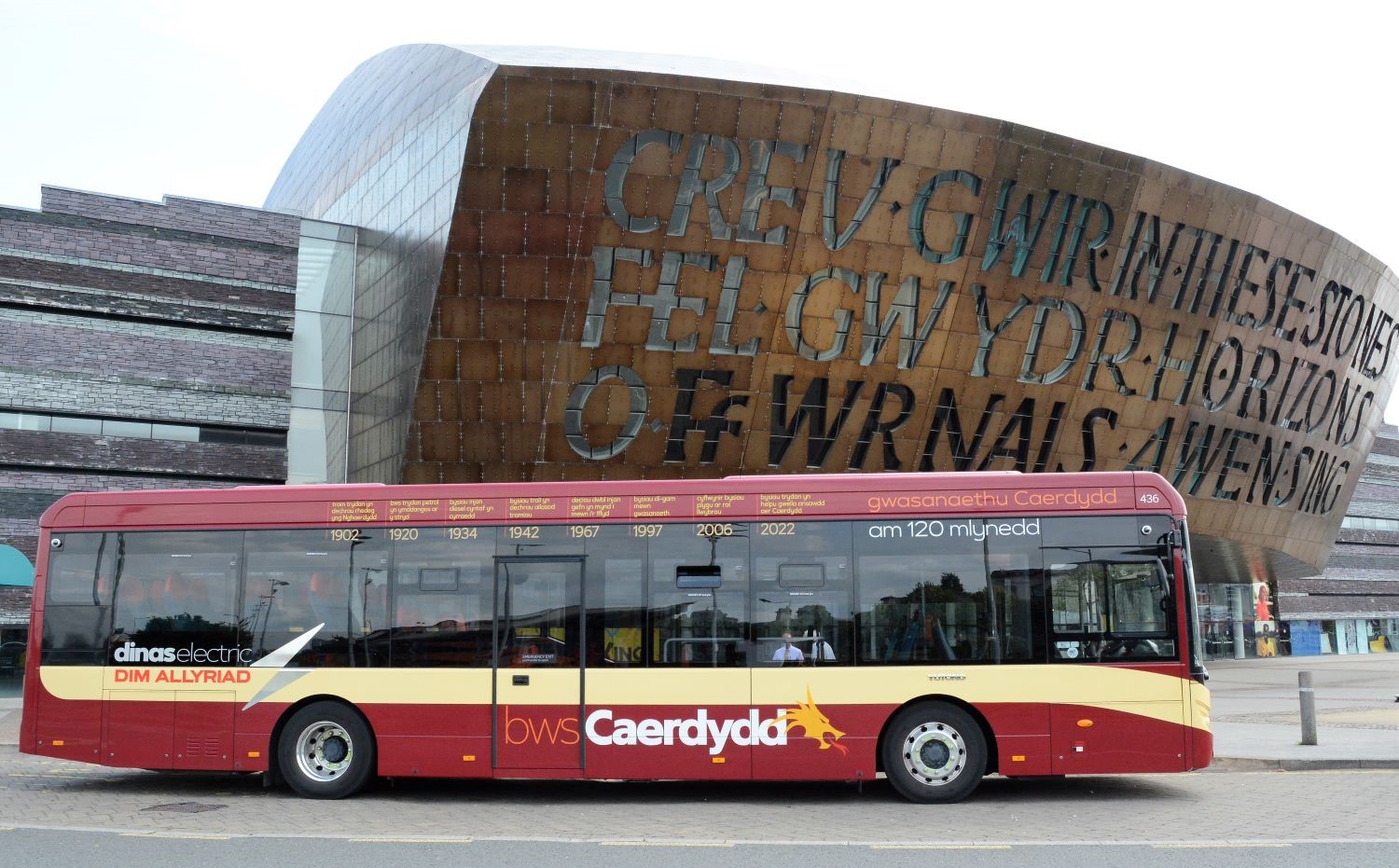Bus usage across Britain rose by 8% in the year ending March 2024, according to newly published data from the Department for Transport (DfT), although the upsurge in patronage witnessed for the 2022/23 period levelled off.
The first full year’s data since the introduction of the bus fare cap scheme in England painted a less positive picture than the 2022/23 update, which revealed a 19% increase nationwide.
The return of passenger numbers following the COVID-19 downturn continued and numbers are now at 88% of prepandemic levels.
The 12% rise for England outside London may partially reflect the effect of the £2 single fare cap, which was introduced in January 2023 and has been applied to nearly all areas outside the capital.
However, weighed against that are the positive data from Scotland and Wales, where the fare cap scheme has not been in place.
Patronage in Wales, which was slower to bounce back after the pandemic, saw a 16% rise over the previous 12 months.
For Scotland, the figure was 13% in the second full year of data influenced by the free travel for under-22s scheme.
In non-metropolitan areas, where the single fare cap may be expected to have the biggest influence, the rise in patronage was higher (10.4%) than for metropolitan areas outside London (7.6%).
Bus usage in London rose by 4% and stands at 88% of that for 2019-20.
However, nationally, patronage remains at only 70% of 2008 levels, according to DfT’s historic data, now standing at 61 journeys per capita.
South Gloucestershire sees biggest increase
Brighton and Hove continues to top the local authority (LA) leaderboard with 147 journeys per head of population. This compares to 207 for London.
Second best is Nottingham, which is one of the few LAs to exceed levels of patronage from 2010, which is when DfT’s dataset begins. With 126 journeys per capita, this is 101% of the value from 14 years ago – compared to the 73% for London and 71% for England as a whole.
South Gloucestershire enjoyed the biggest year-on-year increase – 137% to 30 journeys per capita.
Thurrock (121%) and City of Bristol (115%) have the most improved patronage figures versus 2010.
Mileage remains steady
Vehicle distance travelled showed no statistical difference to the previous 12 months – a year after the data showed a drop of 5.3%. Buses clocked up 1,227,000km across Great Britain.
A decrease of 1.1% for commercial service mileage was countered by an increase of 7.2% for local authority-supported distance travelled.
Service mileage in London also revealed no difference statistically.
Across the nations, the only notable change was a 3.8% decrease in Wales, but a regional divide was seen in the North. The North East suffered a 5.8% drop in contrast to the 4.5% increase for the North West.
Fares keep pace with inflation
Bus fares across Britain rose by 3.7% in the 12 months to March 2024 – as against the 4.3% general inflation level as measured by the Retail Price Index.
The biggest fare increases came in Scotland where the average increase was 10%. The rise was lowest in London (1.2%), where prices are set by Transport for London.
When allowing for inflation, fares nationally are 11% cheaper than in 2016.
Concessionary travel returns
The number of concessionary journeys continued to bounce back following the pandemic. This is most notable in London where travel is 86% of pre-COVID-19 levels – up from 79% the previous year. For metropolitan areas, it is 69% – up from 67% for 2022-23. For non-metropolitan areas, it is 72% – up from 68%.
For London, the number of concessionary journeys rose by 9% – versus 2% for metropolitan areas and 6% for non-metropolitan areas.
Total concessionary journeys in 2023/24 made up 28% of all bus journeys in 2023/24, corresponding to 29% for the year ending 2023 and 32% for the year ending 2020.
The number of disabled and older passenger concessionary passes rose by 1% to 8.8 million.
CPT response
The Confederation for Passenger Transport (CPT) welcomed news of the rise in patronage, which equated to 8% in absolute terms.
Graham Vidler, CPT CEO, says: “The Confederation for Passenger Transport welcomes today’s news from the Department for Transport that bus passenger journeys across Great Britain rose by 8% to 4.04 billion – or 11 million every day – in the year ending March 2024.
“While numbers remain lower than before the pandemic, this is a significant milestone for the industry, marking 28% growth over the past two years and highlighting the essential role buses play in connecting communities and supporting local economies.
“The continued recovery of passenger numbers is a testament to the resilience of the industry and the dedication of bus operators, drivers, and staff who continue to work tirelessly to provide better journeys for all.
“Considerable growth in journey numbers in places like Norfolk and Portsmouth – where journeys grew by 17% – also underscores how Bus Service Improvement Plans which grow networks and improve experiences lead to an uptick in passenger numbers.
“Finally, today’s numbers underscore the importance of continued government support for fares, and investment in bus priority measures, which make the bus a more attractive option, and encourage more passengers to get on board.
“We look forward to continuing to work with government and local authorities on behalf of our members to ensure the momentum of recovery is maintained and that buses remain a cornerstone of our transport network.”



























